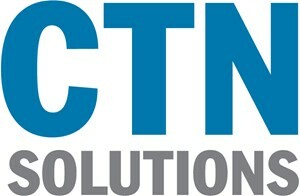As vaccines are showing promising results, we finally seem to see a light at the end of the COVID-19 tunnel. While it is still early to “look back on” the pandemic (after all, we are far from out of the woods), it makes sense to look to the future and consider how the lessons we’ve learned will continue to impact us—and this is perhaps nowhere truer than in the workplace.
The Outlook
With over 25 million doses of vaccine successfully administered worldwide as of this writing, it finally feels like it makes sense to consider how the workplace will be shaped once the threat of the virus is ultimately rendered controllable.
There is no denying that work and employment were two factors that the pandemic wreaked havoc upon. Some industries were shut down or heavily restricted in the interest of public health, while others were more essential than ever before. Of course, in terms of employment, this caused a huge dip in employment rates around three times worse than most economic recessions on record.
Fortunately, the technology that we have today has enabled many—but by no means all—of the jobs put on hold initially to either be replaced or resumed in some manner. The growing remote capabilities of today’s workforce have assisted many businesses in remaining open, as well as encouraged many, many new business applications to be submitted, primarily those that operate online.
Naturally, we are all hopeful for a return to some semblance of the working environment that COVID-19 has interrupted. However, to simply abandon the improvements and innovations that we have embraced as a means of surviving once they are no longer necessary can (and should) be seen as foolish.
Therefore, we feel that we can safely predict a few foundational changes in how “business-as-usual” is shaped.
How Remote Work Will be Different
First, we confidently expect the proportion of companies that embrace remote capabilities (provided they could/can do so) to rise, for a few reasons:
- Unfortunately, many businesses who could have—but didn’t—embrace remote operations, are no longer in operation, as they could not support themselves financially through the extended shutdowns that the pandemic has forced.
- The number of available tools and technologies that support remote operations has increased with the heightened demand.
- Businesses will be more likely to consider the viability of remote work as it concerns their long-term business strategies and cost optimization.
Of course, for remote work to…well, work… moving forward, these steps cannot be backtracked upon. Furthermore, there needs to be active efforts made to encourage the idea of work being possible from either home, the office, or elsewhere.
Embracing these shifts and incorporating them into your workplace culture and operational strategies will help to normalize them amongst your employees. Focusing on the security needed to safely do so, as well as the training to help your team make the most of these solutions will be crucial. Doing so will assist your business to succeed in its overall goals.
Remote work has been proven to be an essential tool for the modern organization, so don’t neglect it in the hopes that such a terrible thing will never happen again. CTN Solutions can help you put these technologies in place, amongst many more. To learn more, reach out to our team at (610) 828- 5500.
